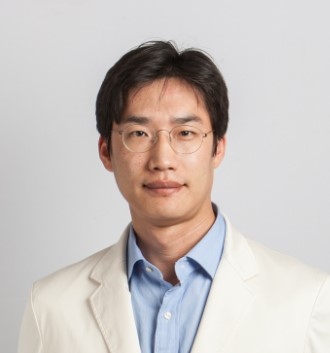Faulty List At SAIHST, we have faculties from various backgrounds such as ; basic science, clinical medicine, pharmacology, engineering, business etc. SAIHST is always open for future competent faculties to lead biomedical science.
| Il Joon Moon / M.D., Ph.D. |
 Name : Il Joon Moon M.D., Ph.D.
Department : Department of ORL-HNS Samsung Medical Center
Title : associate professor
Campus : Samsung Medical Center campus
Office : Department of Otolaryngology, Comprehensive Cancer Center, Samsung Medical Center
E-mail : moonij@skku.edu
Homepage :
Lab. title : Samsung Hearing Research Laboratory
Related Department : Department of Medical Device Management and Research, Digital Health and Health Sciences and Technology
Print
PDF Download
Name : Il Joon Moon M.D., Ph.D.
Department : Department of ORL-HNS Samsung Medical Center
Title : associate professor
Campus : Samsung Medical Center campus
Office : Department of Otolaryngology, Comprehensive Cancer Center, Samsung Medical Center
E-mail : moonij@skku.edu
Homepage :
Lab. title : Samsung Hearing Research Laboratory
Related Department : Department of Medical Device Management and Research, Digital Health and Health Sciences and Technology
Print
PDF Download
|
|
■ Careers
1997 – 2001 M.D. Seoul National University College of Medicine 2005 – 2010 Ph.D. Seoul National University College of Medicine 2009.5 – 2010.2 Clinical fellow (Rhinology), Department of ORL-HNS, Seoul National University Hospital 2010.3 – 2011.2 Research fellow (Otology), Department of ORL-HNS, Samsung Medical Center Sungkyunkwan University School of Medicine 2011.3 – 2015.2 Clinical assistant professor (Otology) Department of ORL-HNS Samsung Medical Center, Sungkyunkwan University School of Medicine 2012.3 – 2014. 2 Visiting scholar (Otology & Audiology) Merrill Bloedel Hearing Research Center Department of ORL-HNS University of Washington Medical Center 2015.3 – present Assistant professor (Otology) Department of ORL-HNS Samsung Medical Center Sungkyunkwan University School of Medicine ■ Research Interests Our lab is the first lab in Korea that has been associated with a Department of Otolaryngology in a tertiary referral center and to own independent research space and equipment. Our lab has grown through conducting national, private, internal projects and various audiological research and development (i.e. auditory diagnosis, cochlear implants, hearing aids, electrophysiology, psychoacoustics, and audio-related technology). In 2008, our lab led the development of Korean hearing aids through the biomedical device and technology development project supported by the Ministry of Trade, Industry and Energy. We conducted clinical research studies to investigate the effectiveness of various hearing loss compensation technologies as a test bed. Since 2012, we have been holding annual international symposiums on hearing aids. We are currently trying to develop an objective method to measure subjective behavioral auditory comprehension abilities using physiological signals. We are also actively collaborating with Samsung Electronics Co. to provide solutions for hearing through wearable devices that work with mobile phones. We plan to utilize Virtual Reality (VR), Augmented Reality (AR), and Deep Learning technology to develop auditory assessment and compensation tools that reflect realistic components. ■ Keywords Auditory diagnosis, hearing loss compensation, hearing aids, clinical research development, hearing solution, VR/AR, Deep learning ■ Selected Publications 1. Kang SJ, Woo J, Park H, Brown CJ, Hong SH, Moon IJ. Objective Test of Cochlear Dead Region: Electrophysiologic Approach using Acoustic Change Complex Scientific Reports, 2018 Feb 2. Choi JE, Won JH, Kim CH, Cho YS, Hong SH, Moon IJ. Relationship between spectrotemporal modulation detection and music perception in normal-hearing, hearing-impaired, and cochlear implant listener. Sci Rep. 2018 Jan 3. Choi JE, Kim EY, Park H, Kim BK, Chung WH, Cho YS, Brown CB, Hong SH, Moon IJ. Sound localization and speech perception in noise of pediatric cochlear implant recipients: bimodal fitting versus bilateral cochlear implants. Ear & Hear 2017 In Press. 4. Winn MB, Won JH, Moon IJ. Assessment of spectral and temporal resolution in cochlear implant users using psychoacoustic discrimination and speech cue categorization. Ear Hear. 2016 Nov/Dec;37(6):e377-e390. 5. Moon IJ, Won JH, Kang HW, Kim DH, An YH, Shim HJ. Influence of Tinnitus on Auditory Spectral and Temporal Resolution and Speech Perception in Tinnitus Patients. J Neurosci. 2015;35(42):14260-14269 |

